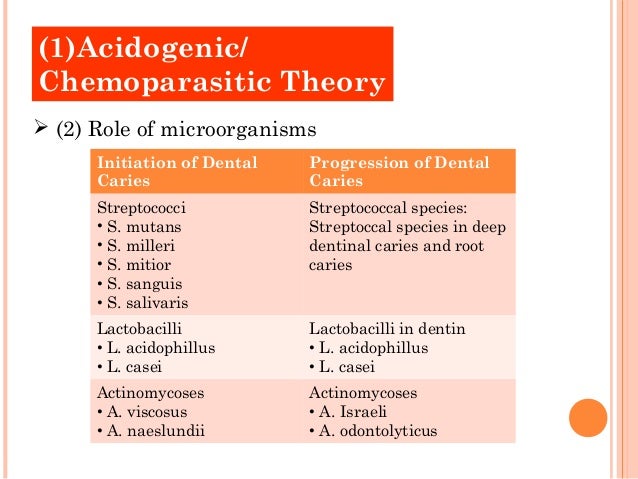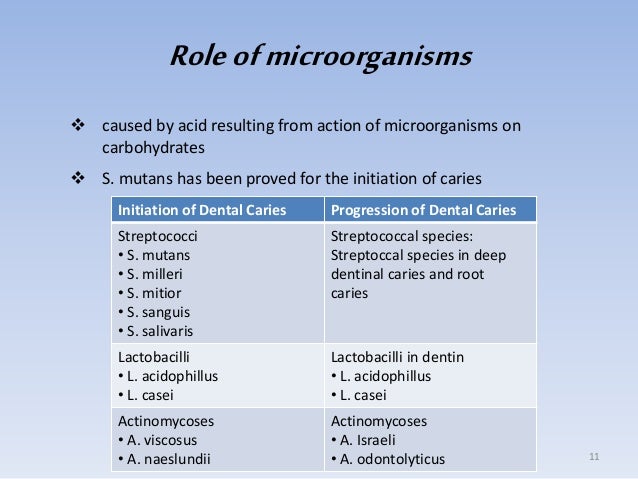Dental caries is a multifactorial polymicrobial disease with environmental behavioral and host risk factors. Mutans streptococci Actinomyces spp and Atopobium spp likely play important roles in caries progression.
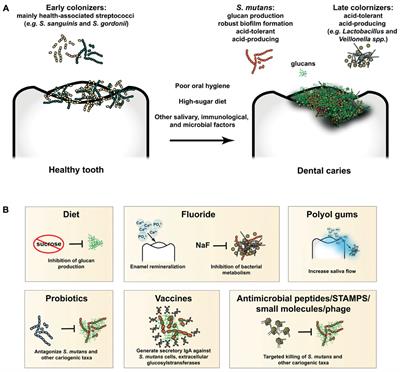
Frontiers Exploiting The Oral Microbiome To Prevent Tooth Decay Has Evolution Already Provided The Best Tools Microbiology
Mutans streptococci Actinomyces spp and Atopobium spp likely play important roles in caries progression.

Dental caries bacteria species. Streptococcus mutans and Lactobacilli among them. The Gram-positive and facultatively anaerobic mutans streptococci are aetiologically the most important bacteria in dental caries. The mouth contains a wide variety of oral bacteria but only a few specific species of bacteria are believed to cause dental caries.
Were over-abundant in caries-active subjects whereas beneficial species associated with dental health included S. The bacterial composition of saliva from 19 young adults was. These prokaryotes especially Gram positive bacteria like Lactobacillus spp Streptococcus mutans and Actinomyces spp are available in oral biofilms which is the sticky slimy coating in the mouth that is most visible before brushing away that awful breath in the morning.
Mohammed Awadh Alshahrani Department of Dental Education. Bacterial species other thanS. There are three major hypotheses.
Most of these bacteria are present in the oral cavity even when there is no dental caries in. When kissing it takes only 10 seconds for no less than 80 million bacteria to be. We explored bacterial species associated with the salivary microbiome of individuals with low susceptibility to dental caries.
Viscosus Rothia dentocariosa Propionibacterium Prevotella Veillonella. Dental caries is caused by acidogenic plaque microbiota formed on saliva-bathed tooth surfaces in which multiple organisms act collectively to initiate and expand a cavity. More than 800 species of bacteria colonize oral mucous 1300 species are found in the gingival crevice and nearly 1000 species comprise dental plaque.
Mutans eg species of the generaVeillonella Lactobacillus Bifidobacterium and Propionibacterium low-pH non-S. 2 Smooth surface Caries. Mutans Actinomyces spp and Lactobacillus spp.
Dental caries more commonly known as tooth decay or cavities is the destruction of enamel dentin or the cementum caused by acid producing bacteria in a dental plaque. Their increase causes dental decay. Unlike most infectious diseases where there is a single etiological agent dental caries is caused by a host of bacteria and therefore is termed a polymicrobial disease.
Bacterial species other than S. The most frequent species found associated with dental caries were mutans streptococci and lactobacilli which shift the balance towards tooth tissue demineralisation. Mutans streptococci Actinomyces spp and Atopobium spp likely play important roles in caries progression.
The bacterial composition of saliva from 19 young adults was analyzed using barcoded. Types of Bacteria causing Dental Caries. 12 which have been reported to be associated with dental caries as well as Prevotella amnii.
Taken together the number of species identified in. We explored bacterial species associated with the salivary microbiome of individuals with low susceptibility to dental caries. Authors Ana Zilda Nazar Bergamo 1 Mirian Aiko Nakane Matsumoto 1 Cássio.
The mouth is a rich environment for hundreds of species of bacteria since saliva is mostly water and plenty of nutrients pass through the mouth each day. Mutans eg species of the genera Veillonella Lactobacillus Bifidobacterium and Propionibacterium low-pH non- S. 1 Pit fissure Caries.
A type of bacteria called the mutans streptococci are the most commonly implicated microbes in dental caries. Dental caries is one of the most common chronic infectious diseases in the world 2 39. The result is a lesion in the crown or the root surface of the tooth.
Lactobacillus acidophilus Actinomyces viscosus Nocardia spp and Streptococcus mutans are most closely associated with caries in particular root caries. Mutans eg species of the genera Veillonella Lactobacillus Bifidobacterium and Propionibacterium low-pH non-S. Oral biofilm Corresponding author.
Dental caries is caused by acidic metabolites of bacteria that usually live in the mouth where they nourish on carbohydrates. Dental caries is caused by acidogenic plaque microbiota formed on saliva-bathed tooth surfaces in which multiple organisms act collectively to initiate and expand a cavity. Epub 2019 Apr 11.
The In-OvationR presented worse performance considering the levels of cariogenic bacterial species. These species included Streptococcus mutans 14 151617 and multiple Prevotella spp. 4 Deep dentinal caries.
Microbial species associated with dental caries found in saliva and in situ after use of self-ligating and conventional brackets J Appl Oral Sci. Bacterial species other than S. Data have rapidly increased on the association of these bacteria with certain periodontal diseases or caries on phenotypic and genotypic characteristics pathogenic mechanisms antibiotic susceptibility patterns and transmission among family members.
Dental caries can also be caused by other bacteria such as Enterococcus faecalis Actinomyces naeslundii A. 1 The presence of cariogenic bacteria and fermentable carbohydrates are prerequisites for dental caries with bacterial metabolic activity resulting in the production of acid that can demineralize dental hard tissues. Bacteria collect around the teeth and gums in a sticky creamy-colored mass.

Bacterial Species Identified In Carious Coronal Dentin Download Table
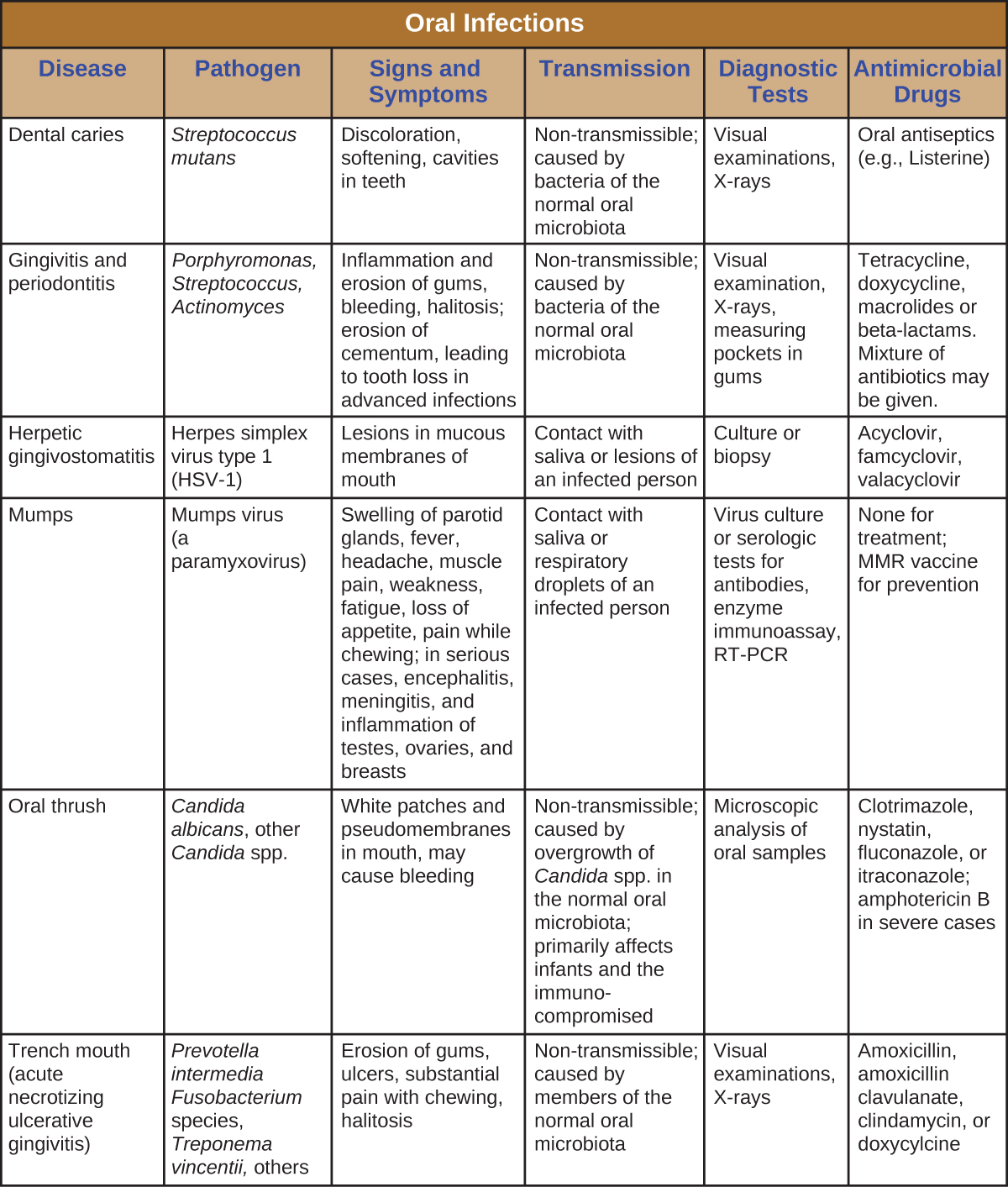
24 2 Microbial Diseases Of The Mouth And Oral Cavity Biology Libretexts

Dental Caries Etiology And Remedy Through Natural Resources Intechopen

Atp As A Biomarker For The Caries Infection Carifree

Spatial Mapping Of Polymicrobial Communities Reveals A Precise Biogeography Associated With Human Dental Caries Pnas

Periodontitis And Caries Associated Salivary Microbiota A Venn Download Scientific Diagram
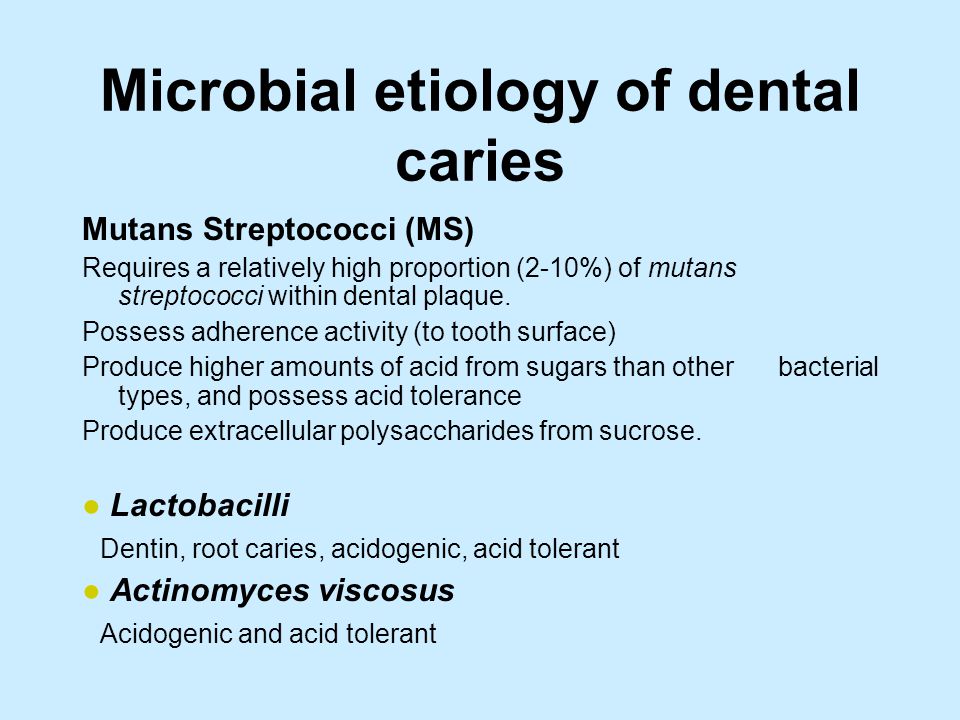
Dental Caries Ppt Video Online Download

Pdf Dental Plaque Fermentation And Its Role In Caries Risk Assessment
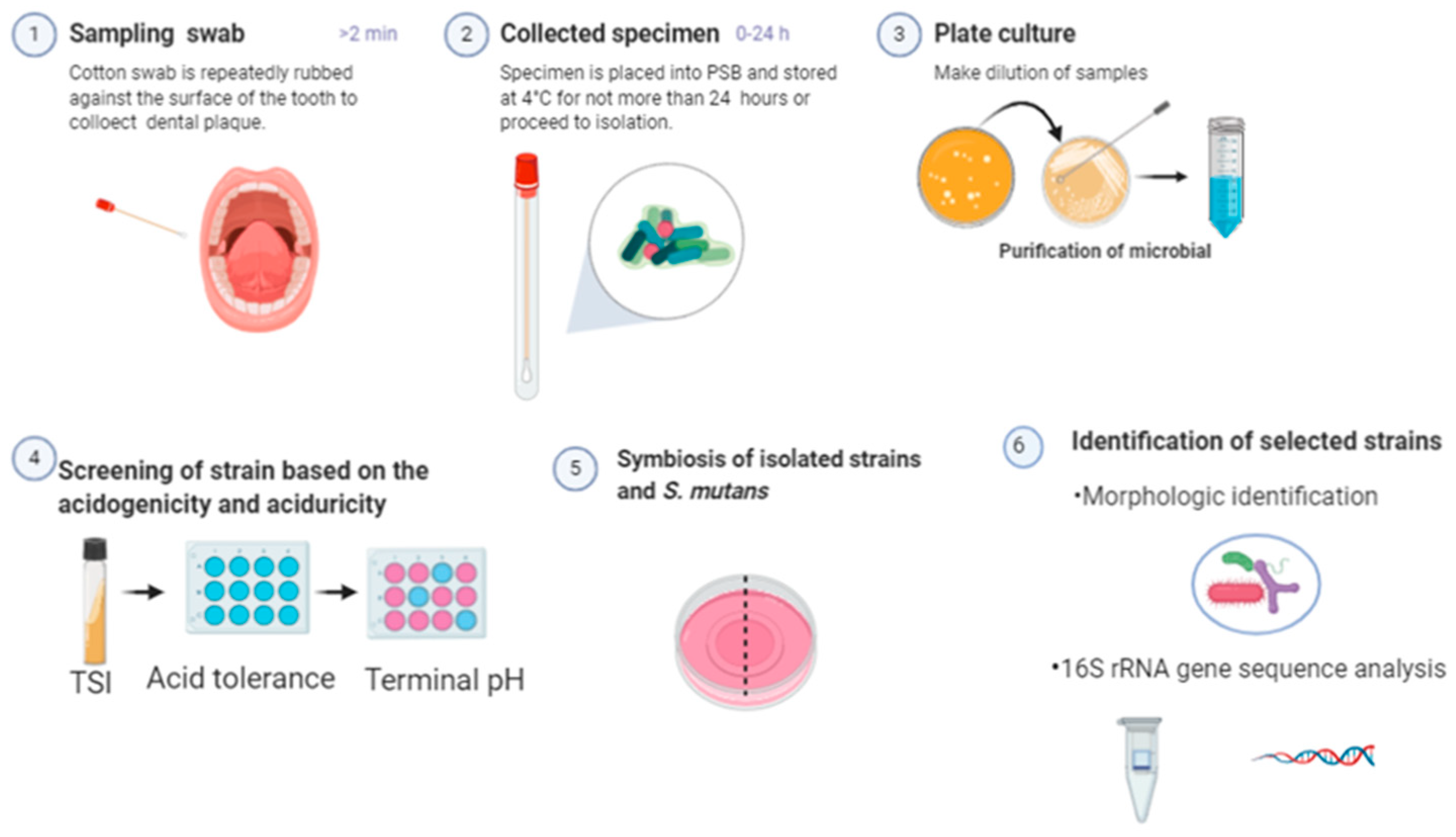
Microorganisms Free Full Text Isolation And Identification Of Potentially Pathogenic Microorganisms Associated With Dental Caries In Human Teeth Biofilms Html

Toward Dental Caries Exploring Nanoparticle Based Platforms And Calcium Phosphate Compounds For Dental Restorative Materials Sciencedirect
Abstract Background The Oral Cavity Harbours A Large Number Of Bacterial Species As Normal Flora Existing As Biofilm Dental Disease Such As Dental Caries Results When There Is A Shift In The Balance Of Bacteria Towards Pathogenic Species Within These
